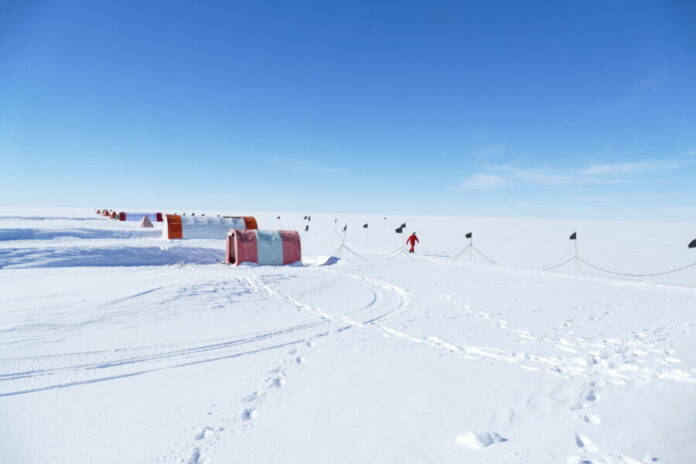The Earth is currently undergoing a rather unique climate change. For the past 1 million years, our planet has been going through an ice age every 100,000 years, like clockwork.
The Earth is currently undergoing a rather unique climate change. For the past 1 million years, our planet has moved in and out of ice ages like clockwork, every 100,000 years. The only problem is that researchers have never been able to find the cause. In fact, they were so puzzled by this mysterious phenomenon that they dubbed it the ‘100,000-year problem’. But now, a new study may finally provide a solution. It suggests that our oceans may be regularly absorbing more CO2 from the atmosphere every 100,000 years, causing the planet to cool enough to trigger an ice age.
The Earth has been experiencing ice ages (large ice sheets covering North America, Europe and Asia) every 100,000 years for about 1 million years. But before that, before this point known as the Middle Pliocene transition, our planet’s ice ages occurred every 40,000 years, which made much more sense to scientists. This is because the Earth’s angular tilt wobbles on a 40,000-year cycle. This means that the planet’s summers get colder than usual every 40,000 years because the planet is tilted towards the Sun.
- The world’s oldest DNA has been discovered, revealing an ancient Arctic forest teeming with Mastodons
- Mice that have lost their Y chromosome but continue their lineage could save humanity from extinction
It makes sense that the deviation in Earth’s tilt would produce 40,000-year ice ages. But until now, no one has been able to explain what happened during the Middle Pliocene transition, which changed this natural cycle and put our Earth on a 100,000-year timetable. Now researchers have stumbled upon a new planetary cycle and suggest that this shift could be the result of our oceans regularly absorbing more CO2 from the atmosphere.
Ocean Breathes Carbon Dioxide
Lead researcher Carrie Lear from Cardiff University in Wales explains: “We can think of oceans as things that breathe in and breathe out carbon dioxide, so when the ice sheets are bigger, the oceans breathe in carbon dioxide from the atmosphere, making the planet colder. When the ice layers are smaller, the oceans exhale carbon dioxide, so there’s more carbon dioxide in the atmosphere and the planet becomes warmer.”
It has long been known that our oceans can store carbon, in part through the activity of marine algae, which must absorb carbon to photosynthesize. To understand what was happening, the team looked at the fossil remains of marine algae from the past millennia and wanted to see if the CO2 they were absorbing was stable. They found that there were periods when the algae showed signs of absorbing significantly more CO2, and yes, these periods occurred about every 100,000 years and coincided with the timing of Earth’s ice age.
The team suggests that this extra CO2 removed from the atmosphere by the marine algae caused enough of a drop in temperature for extensive ice sheets to form in the Northern Hemisphere. After a while, the CO2 was naturally brought to the surface through a process known as upwelling, but by this point the ice age was in full operation and the CO2 was trapped in the ocean by the glacial layers covering most of the planet, keeping the Earth colder for longer.
Lear said: “If we think of our oceans as exchanging carbon dioxide, the presence of large amounts of ice is like a giant candy bar. It’s like a lid on the surface of the ocean.” More research is needed to understand what causes these marine algae to suddenly absorb more CO2 every 100,000 years, and additional studies will need to confirm whether this activity is enough to trigger an ice age.
But this study provides useful insights into the cycles that have affected our planet and will continue to do so in the future. The Earth is currently in a warm period between ice ages, with the last ice age ending around 11,000 years ago. But there is evidence that human-induced climate change is already suppressing the occurrence of the next ice age, and experts predict that an ice age will not occur for at least another 100,000 years, meaning that the next ice age has been slightly postponed.
Hopefully, before that time comes, humanity will have found a way to curb or even reduce the amount of CO2 we are pumping into the atmosphere, so that the Earth’s natural cycles have a chance to repair some of the imbalances in our current climate patterns.
The research is published in the journal Geology
The research: Science Alert, “We might finally know the weird reason Earth experiences an ice age every 100,000 years “
http://www.sciencealert.com/we-might-finally-know-the-weird-reason-earth-experiences-an-ice-age-every-100-000-years


